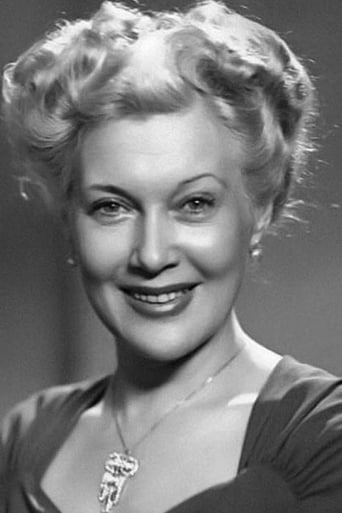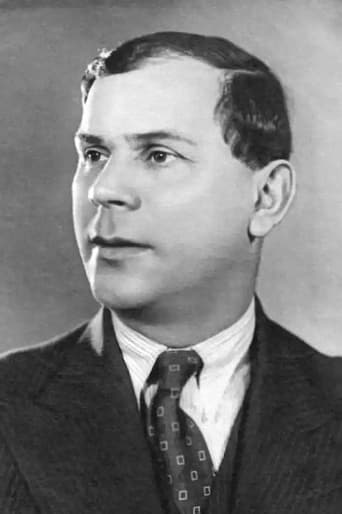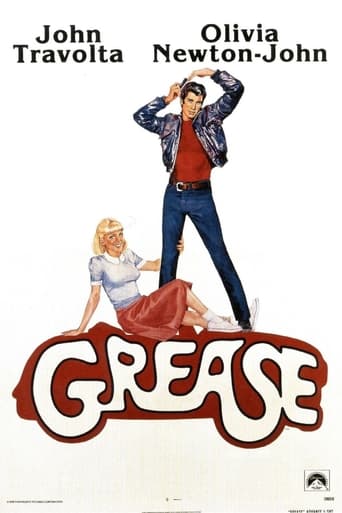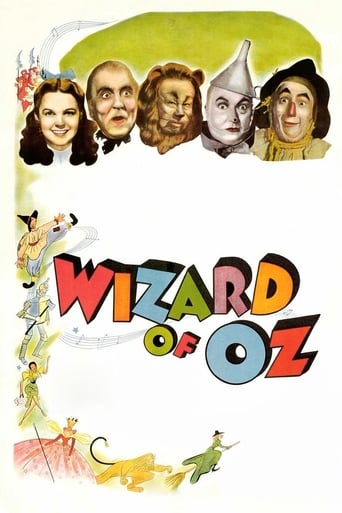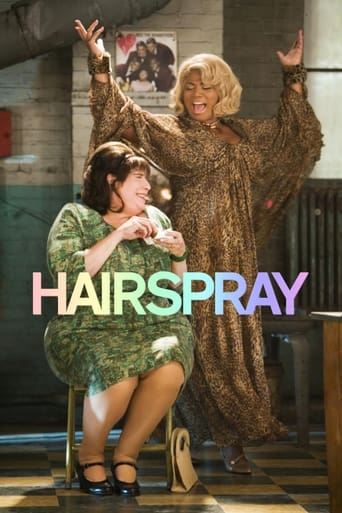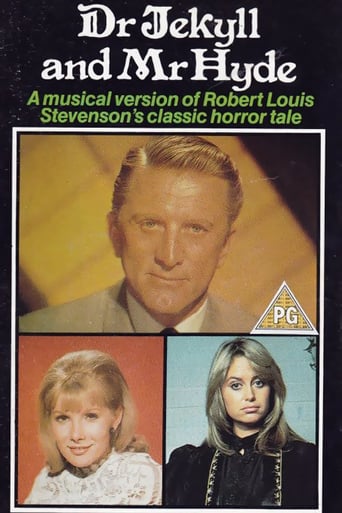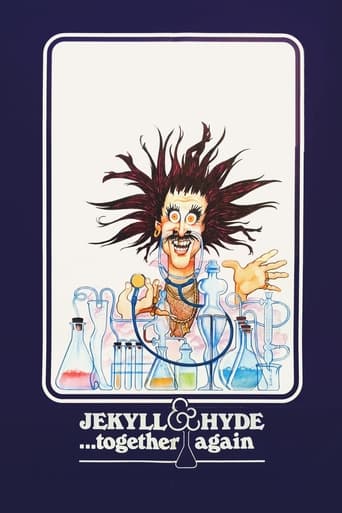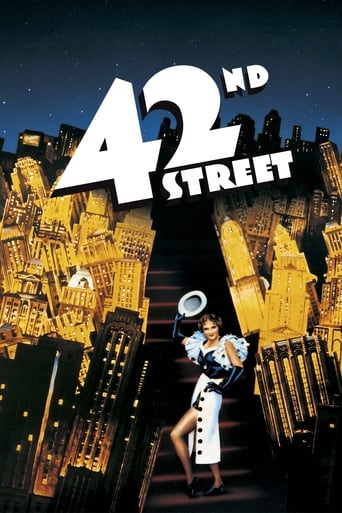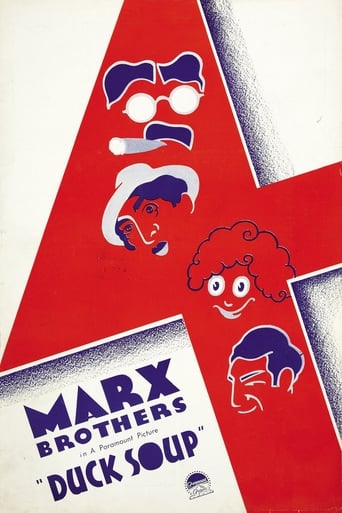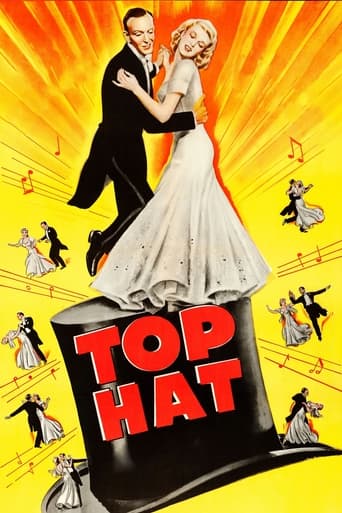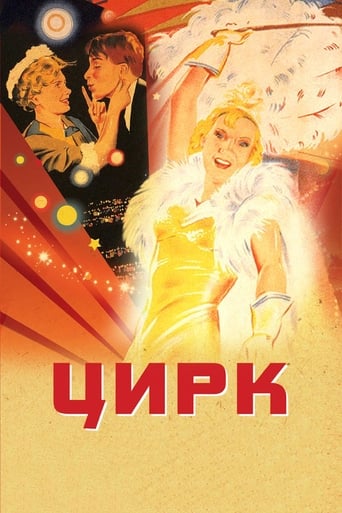
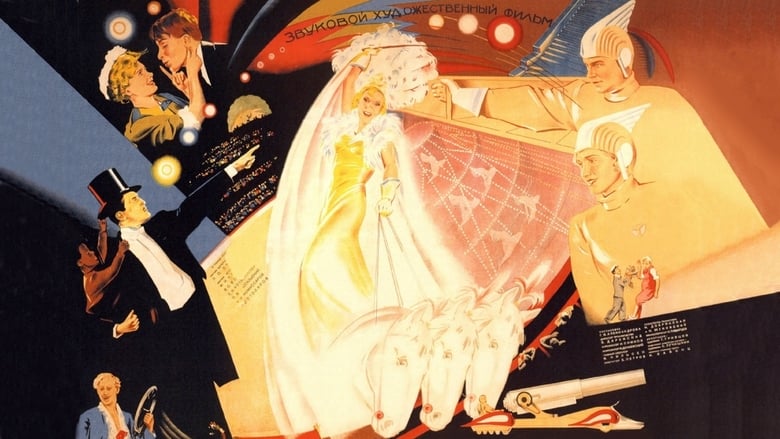
Circus (1936)
An American circus performer finds herself the victim of racism after it is revealed that she's the mother of a mixed-race child. In the midst of the public scandal, she finds happiness, love, and refuge in the USSR.
Watch Trailer
Cast


Similar titles
Reviews
Very best movie i ever watch
what a terribly boring film. I'm sorry but this is absolutely not deserving of best picture and will be forgotten quickly. Entertaining and engaging cinema? No. Nothing performances with flat faces and mistaking silence for subtlety.
Strong acting helps the film overcome an uncertain premise and create characters that hold our attention absolutely.
The movie really just wants to entertain people.
Tsirk is a movie best viewed for historical value. Filmed during what could have been the height of censorship in the Soviet Union, Tsirk is fascinating if only for its historical significance. The purpose of this film was as a propaganda piece to display the differences between the acceptance and unity of the Soviet Union and the isolation and separatism of other countries. The story is set in the year it was made and is set in what is apparently the only circus in Russia with an unlimited set construction budget. A beautiful young performer becomes pregnant with a biracial baby, and was literally chased from America by an indignant mob. She finds solace in Russia, and finds work there as a young circus performer. Although she is incredibly successful, her German pimp abuses her emotionally and physically. She strives to find acceptance among her peers; specifically one poster child for the Soviet Union, the immaculate Ivan Petrovich, who is slated to become her co-star in some new-fangled stunt. Over the course of a few days, a number of musical numbers, and a surprising amount of actual jokes, our beauty learns that in the Soviet Union all persons are equal. The movie ends with, believe it or not, a parade full of marching and bright-eyed comrades. There are multiple themes in the movie but as ineloquent as it may sound, they can boil down to one main theme: the superiority of the Soviet Union. The theme of unity is a powerful one, as our poor heroine spends the majority of the movie pining in isolation before being accepted into the Russian brotherhood. This theme is underscored by the sinister, woman-beating German, and the improbably good-looking/talented Russian love interest. To be fair, the acting is above-par for this era, as well as the directing. The problem is that the storyline is so juvenile as to be insulting, and it seems as if the director's spirit to create something unique was more than a little crushed by overwhelming censorship of the time. Believe it or not, I actually enjoyed this movie. It was a fascinating look at life through the rose-tinted lenses of the soviet leaders, and the musical numbers were not painful in the least. The general mood of the film is lighthearted fun, and I would recommend it to a friend without a doubt. It is a whimsical fluff piece, one that sometimes even manages to charm. I would, however, be remiss if I didn't mention the most positive aspect of this movie: racial equality. Racially speaking, this movie is incredibly progressive; almost shockingly so for the period. The message of races uniting is a beautiful one, one that is marred by only Stalin's face being carried by the euphoric crowd.
Circus is about an American dancer, who is touring through Moscow as a dancer in the circus. She falls in love with a soldier in Russia. It's discovered that she is the mother of an interracial child, which displeases her manager. She comes under attack from him, but she is ultimately accepted into the loving embrace of the Soviet people.The director of Circus Grigori Aleksandrov had a specific purpose when making this film - to show that the unity of the people could rise above any opposing force. The film serves as a propaganda piece for Russia, Stalin, and socialism. At the end of the film, when our main character is under attack from the villain, everyone in the circus audience quickly comes to her aid and hides the baby from hard. This represents the unity and equality of the Russian people. Everyone is equal and everyone is accepted. The film takes place in the 1930s, in Russia. Most of the action takes place within the walls of the circus. Although, at the end of the film, the whole group of performers and friends march through the streets of Moscow in praise of unity, communism, and Russia. I thought the movie was very interesting and thought provoking. Not only did it contain musical elements, but it also proclaimed an intense social message. I especially liked the story line, because it seemed unique and interesting - how many movies about American dancers in the Russian circus are there?I would definitely recommend this film to a friend because of the unique story, the 30s-era musical numbers, and the interesting social message. Not many movies usually spell out their message in such a way as Circus did. Imagine if every movie with an important social message had its characters run through the streets at the end, proclaiming the lesson learned!It's interesting to see a moment in time, in a country where the people are so passionate about unity. You know things were not this perfect in real life, but its fun to see a glossed over version of history - if only to recognize its weirdness.
Circus, or Цирк (Tsirk) in Russian, is one of Grigori Aleksandrov's musical comedies of the Stalinist era of the Soviet Union. As a work of state approved propaganda, the film seeks to glorify the socialist utopia of the USSR, where people of all races and classes are equal. While the film is set primarily at a circus in 1930s Moscow, however it opens in the United States, remaining there just long enough to demonstrate what the film will later show to be the extreme racial intolerance of the country.In the movie, American actress Marion Dixon (played by Lyubov Orlova) flees from an unknown scandal, shown in the film's typical over-the-top manner with an angry mob chasing her out of town. Eventually, Marion ends up performing at a circus in Moscow, staying there for a limited-time run with her stereotypically German manager. There, she falls in love with the dashing Ivan Petrovich Martynov, Red Army soldier, fellow performer, all-around perfect Soviet man. However, her controlling manager, language and ideological problems, and the aforementioned secret hang above her head, preventing that love from flourishing. After much goofiness, her secret is revealed to all: she fathered a child with an African-American man, a black baby. Much to the chagrin of her manager and even Marion herself, the noble Soviet people, as represented by the circus audience, love all children equally, and sing the child a lullaby in the many languages of the peoples of the Soviet Union. Finally learning what it means to be a citizen of the USSR, Marion and Martynov march together in the May Day parade through Red Square.All of this serves to emphasize the primary theme of the movie, the Soviet Union under Stalin is a utopian society where all are equal and accepted, regardless of race or nationality. This theme can be seen most in the characters. Marion, the American actress, comes to Moscow belittled and made to feel inferior by her own country and her German manager because of her child. She knows little of socialism or even the Russian language. As the film progresses however, she begins to learn both of the language, and the society it symbolizes. She strives for the love, and the perfection, of Martynov, and in so striving becomes an equal part of the collective, as shown by the parade ending the movie. The German manager however is devious, racist, threatening, and literally self-inflating, the foil to the perfection of the Soviet Union. This pro-Soviet anti-German characterization is powerful for the time, with the USSR preparing for the soon-to-come German invasion. Finally, the audience of the circus serves as the final major character, rejecting the racism of the German and showing the citizens of the Soviet Union to be both diverse and tolerant, unlike the citizens of Germany and even the United States.Overall, I found the film to be amusing, with above-average music and impressive set-pieces. However, despite its overtly positive demeanor and often effective comedic gags and music, there is something chilling lurking beneath the surface of Circus. In a film trumpeting the inclusiveness of the Stalin-era inclusiveness, the deletion of the final song sung in Yiddish and the execution of the man, Solomon Mikhoels, who sang it serves as a grim reminder of the almost insane hypocrisy of the film, and indeed the era of Soviet history as whole. The institutionalized racism and Anti-Semitism of the Soviet Union stands in direct contrast to the themes of the movie. Although it has little to do with the quality of production of the movie itself, I feel the weight of that fact hang like a chain from what would otherwise be a somewhat silly, buoyant piece of harmless comedic propaganda. However, the chain is well-deserved, and I could only recommend this film in good conscience with background information about the reality of race relations in the age of Stalin.
If you are going to make a movie endorsing the actions of one of history's greatest villains, in this case Stalin, at least make it fun to watch! "Tsirk" is a funny, melodramatic, accessible movie that features several entertaining acts, such as the impromptu Lion Tamer, the dance on the cannon, and the communal ending. It is heartwarming to see an entire country represented as they sing a child to sleep, until you realize that the Yiddish Representatives were executed after the production. The running theme of confusion, over translation and ideologies, provided the movie with several humorous moments of error, and provided the movie with an honest subtext.Also, worth pointing out, is the movie's fearless attitude towards racism. Hollywood would hint at the problem, but rarely delve into it as much as "Tsirk" has.


